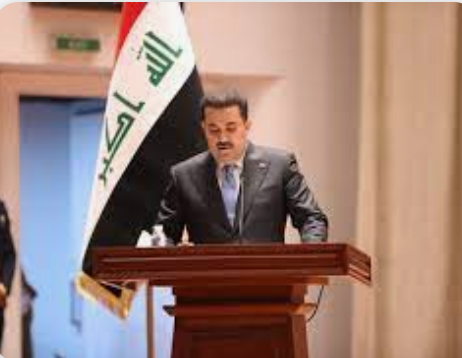 |
| (Reuters) |
Since the Sudani government took office in November 2022 one of its main priorities has been drafting a 2023 budget that includes thousands of new government jobs. This is important for the ruling coalition because these positions are dished out to followers for support and also to pillage the state. The problem is that this process is unsustainable.
There are various reports about all the jobs the government is considering adding to the budget. 11,000 contract workers in the Oil Ministry, 122,000 in the Electricity Ministry and 250,000 lecturers at the Education Ministry will all be made full time employees. The Election Commission is to add 3100 as well as 74,000 college graduates. This reportedly has increased salaries from 41 trillion dinars to 62 trillion and will contribute to a large budget deficit.
Iraqi governments do this all the time to the detriment of the country. When the economy is doing well they try to add as many new positions as possible to dole out to their followers. Then oil prices inevitably drop and the government is thrown into chaos as it can’t pay for all its workers. Then oil prices rise and the process repeats itself. More importantly this can’t be maintained. Adding more and more jobs almost every year also includes pensions for all the retiring workers. In 2003 there were 1.2 million public workers. That more than doubled to 3 million by 2015. There are now around 7 million employees. That’s only an estimate as the number of people on contracts and at state owned enterprises is unknown. That also means a cut in the capital budget for investment which went from 18% of GDP in 2014 to 10% in 2018. In turn, that reduces services so they can’t be used to win support or be used in patronage by the elite who must now rely upon government jobs for that. Chronic deficits and borrowing is the result. The ruling parties don’t care because they are just concerned about staying in power rather than the economy and trying to make it function.
SOURCES
Al Aalem, “After the campaign of appointments .. Did the Sudanese government put Iraq at risk?” 1/5/23
- “The disastrous budget … does it threaten the country with bankruptcy and division?” 1/15/23
Hamilton, Alexander, “The political economy of economic policy in Iraq,” The London School of Economics and Political Science, March 2020
Al Mada, “Parliamentary Finance: The new appointments will raise the total salaries to 60 trillion dinars,” 1/18/23
Al-Mawlawi, Ali, “Public payroll expansion in Iraq: causes and consequences,” The London School of Economics and Political Science, October 2019
Al Masalah, “Jobs devour investment expenditures .. and the state fortifies them against street revolution,” 1/15/23
Tabaqchali, Ahmed, “How Demographics Erode the Patronage Buying Power of Iraq’s Muhasasa Ta’ifia,” Arab Reform Initiative, 7/30/20




No comments:
Post a Comment